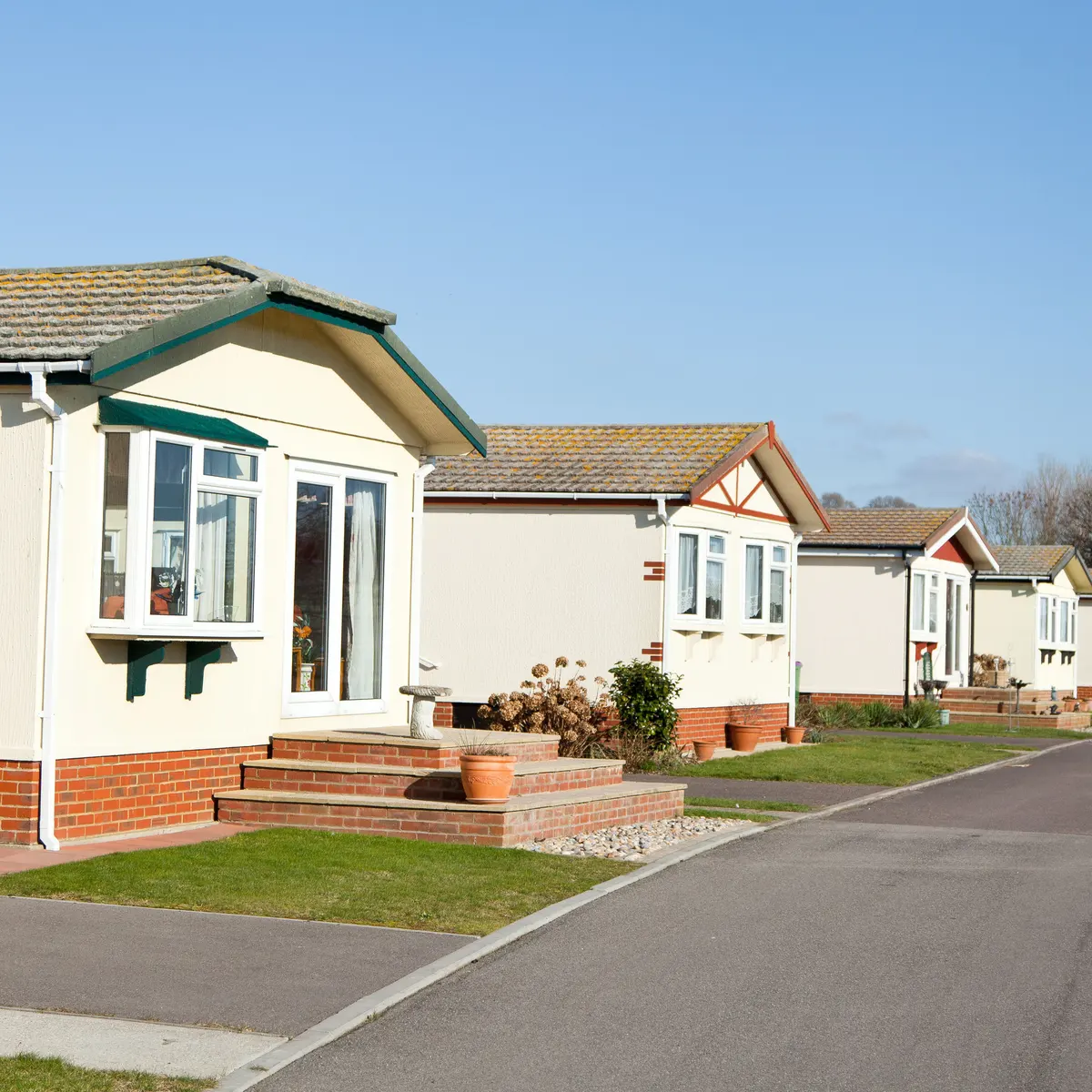What is Park Home Insurance?
Park Home Insurance is a specific type designed to cover UK park homes or static caravans. Park homes are residential structures, typically single-storey, located within designated parks and designed for permanent living. These structures differ from traditional homes, and thus they require specialised insurance coverage. Here’s an overview of Park Home Insurance:
- Coverage: Park Home Insurance typically covers the structure, contents, and personal liabilities. It may include protection against fire, theft, vandalism, storm damage, and flooding, although the exact coverage can vary between policies (Source: MoneySuperMarket).
- Site Regulations Compliance: Park homes are often subject to specific site rules and regulations that may impact the insurance requirements. Ensuring compliance with these rules is usually a prerequisite for obtaining insurance (Source: UK Government’s guide to owning a mobile home or caravan).
- Special Considerations: Unlike traditional home insurance, Park Home Insurance considers the unique construction of park homes and their specific risks. Park Home insurance might include risks related to the site location, the materials used in the building, and the method of anchoring the house to its base (Source: Towergate Insurance).
- Add-Ons and Optional Coverage: Many insurers offer additional options or add-ons to standard Park Home Insurance, such as accidental damage cover, legal expenses cover, or coverage for external structures like sheds and garages (Source: Compare the Market).
- Market Availability: Several UK insurers specialise in Park Home Insurance or offer specific policies designed for these homes. Mainstream insurers might not cover park homes, so specialised procedures might be necessary (Source: ABI).
- Cost Factors: The cost of Park Home Insurance can depend on factors such as the home’s value, location, security measures in place, and the level of coverage chosen (Source: MoneySuperMarket).
Note:
The specific details of Park Home Insurance may vary between providers and policies, so consulting with an insurance professional specialising in this area or referring to the individual policy documents is necessary for the most accurate information. It’s possible that some providers may cover you for multiple policies, such as car insurance.
Park Home Insurance Comparison
To begin, there are several key considerations when purchasing park home insurance in the UK. Here are some essential factors to consider:
Top 5 considerations:
- Specialist Insurance: Park homes are unique properties, and choosing an insurance policy designed for park homes is crucial. Look for insurers specialising in park home insurance, as they will better understand the specific risks associated with these properties.
- Coverage: Carefully review the coverage provided by the insurance policy. Ensure that it offers comprehensive protection against various risks, including fire, theft, flood, storm damage, accidental damage, and public liability. Consider additional coverage options such as legal expenses and emergency accommodation.
- Rebuilding Costs: Park home insurance should cover the total rebuilding costs of your home in the event of a total loss. Ensure the policy provides an adequate sum insured that reflects the cost of rebuilding your specific park home, including any outbuildings or other structures.
- Contents Insurance: Check if the policy includes insurance for your personal belongings within the park home. Ensure the coverage covers all your possessions, including furniture, appliances, clothing, and valuable items.
- Liability Coverage: Public liability insurance protects you if someone gets injured while on your park home property and makes a claim against you. Ensure that your policy provides adequate liability coverage, as legal expenses and compensation claims can be significant.
An additional set of considerations:
- Exclusions and Limitations: Thoroughly read the policy document to understand any exclusions or limitations that may affect your coverage. Some policies may restrict occupancy, the age of the park home, or requirements for specific security measures. Be aware of these conditions to avoid any coverage gaps.
- Security Measures: Many insurers require specific security measures to be in place, such as approved locks, alarms, or security systems. Check the insurer’s requirements and ensure your park home meets those standards to avoid a potential rejected claim.
- No Claims Discount: Inquire about the availability of a no-claims discount, which can significantly reduce your premiums if you have yet to make any claims for a specific period. It’s worth considering if you have a good claims history.
- Policy Excess: Understand the policy excess amount, the contribution you must pay towards any claim. Compare excess levels across different insurers and ensure it is affordable in case of a claim.
- Insurance Provider Reputation: Consider the reputation and financial stability of the insurance provider. Look for reviews, check customer service ratings, and assess their claims handling process to ensure you choose a reliable insurer.
- Policy Renewal: Consider the renewal process and any automatic renewal clauses. Take the time to review your policy annually to ensure it still meets your needs and to compare quotes from different insurers to find better coverage or premiums.
Considerations
Remember to compare multiple insurance quotes to find the policy that offers the best coverage, value for money, and meets your specific requirements. It’s advisable to consult with insurance professionals or brokers who specialise in park home insurance to get personalised advice based on your circumstances.
The key to getting the right Park Home Insurance
Consequently, many companies don’t understand the requirements of a park home, making finding insurance difficult.
This Insurance comparison tool is provided for your use by SEOPA. Insuro.co.uk is not responsible for the contents of the comparison you receive.
Why not start your park home insurance comparison now and see how much you could save?
“The information contained within this page is for editorial purposes only and not intended as financial advice.”
